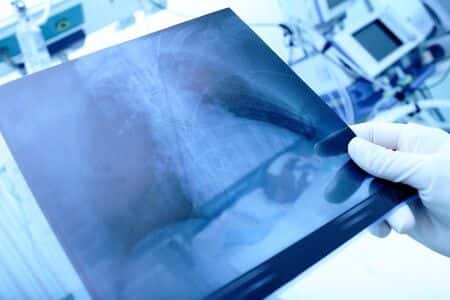This claim involves a middle-aged woman who was misdiagnosed with an aggressive neurological infection, when in fact she had leukemia. The patient spent several weeks in the hospital, where she was seen by several different physicians who noted that her presentation seemed unusual for an infection for a number of reasons. Upon her death, several of the girl’s organs were donated to other patients, who subsequently contracted cancer and died. This case requires review by an infectious disease MD to further confirm that this girl’s presentation was atypical of bacterial meningitis, and thus, warranted further consideration.
Question(s) For Expert Witness
1. Do you treat patients with bacterial meningitis? If so, how often?
2. What is the protocol for organ donation for patients who have died from suspected bacterial meningitis?
3. Have you ever served as an expert witness on a case involving either bacterial meningitis OR solid organ transplant?
Expert Witness Response E-000094
I would be happy to review this case. I do treat bacterial meningitis. In 40 plus years of practicing infectious disease medicine, I have diagnosed and treated over 30 cases of bacterial meningitis. Organs from patients with treated bacterial meningitis may be transplanted under certain circumstances. A study examined the hospital records of 34 patients who received liver transplants from 33 cadaveric donors with bacterial meningitis and compared their outcomes with those of recipients of liver allografts from cadaveric donors who died of causes other than meningitis. Donors received antimicrobial therapy for a mean of 3 days (range, 1 to 6 days) before organ procurement. The mean duration of antimicrobial therapy in the recipients was 6 days (range: 1 to 18 days). The mean post-transplant follow-up was 37 months (range: 1 day to 106 months). There was no difference in recipient or graft survival rates between the 2 groups of patients and infections caused by the meningeal pathogens were not observed. The important factor is to have a confirmed diagnosis at death. I have previously served as an expert witness in several cases involving bacterial meningitis. I could certainly review the medical records to determine whether or not the patient's clinical picture was indicative of bacterial meningitis and whether or not further investigation was warranted prior to organ donation.
About the author
Joseph O'Neill
Joe has extensive experience in online journalism and technical writing across a range of legal topics, including personal injury, meidcal malpractice, mass torts, consumer litigation, commercial litigation, and more. Joe spent close to six years working at Expert Institute, finishing up his role here as Director of Marketing. He has considerable knowledge across an array of legal topics pertaining to expert witnesses. Currently, Joe servces as Owner and Demand Generation Consultant at LightSail Consulting.



